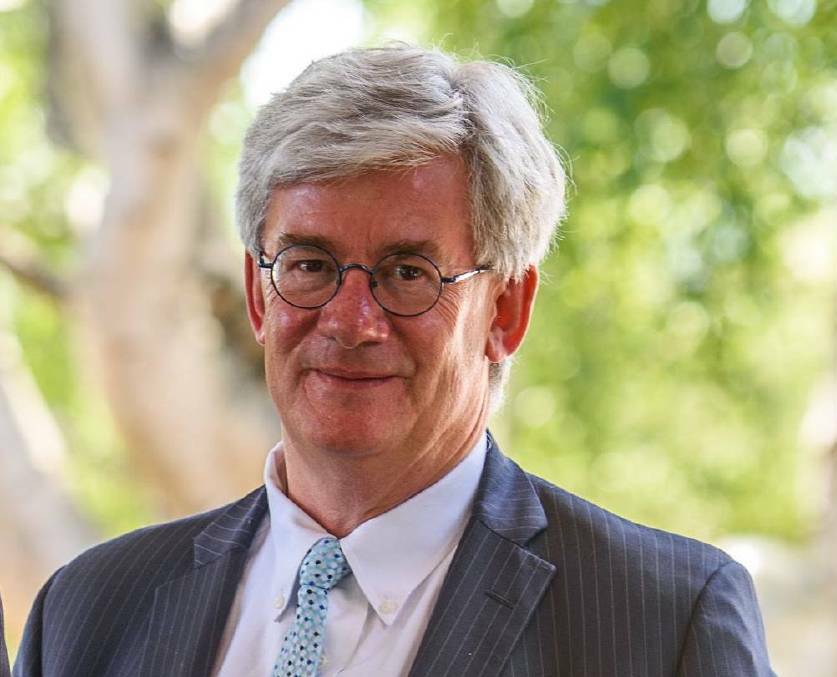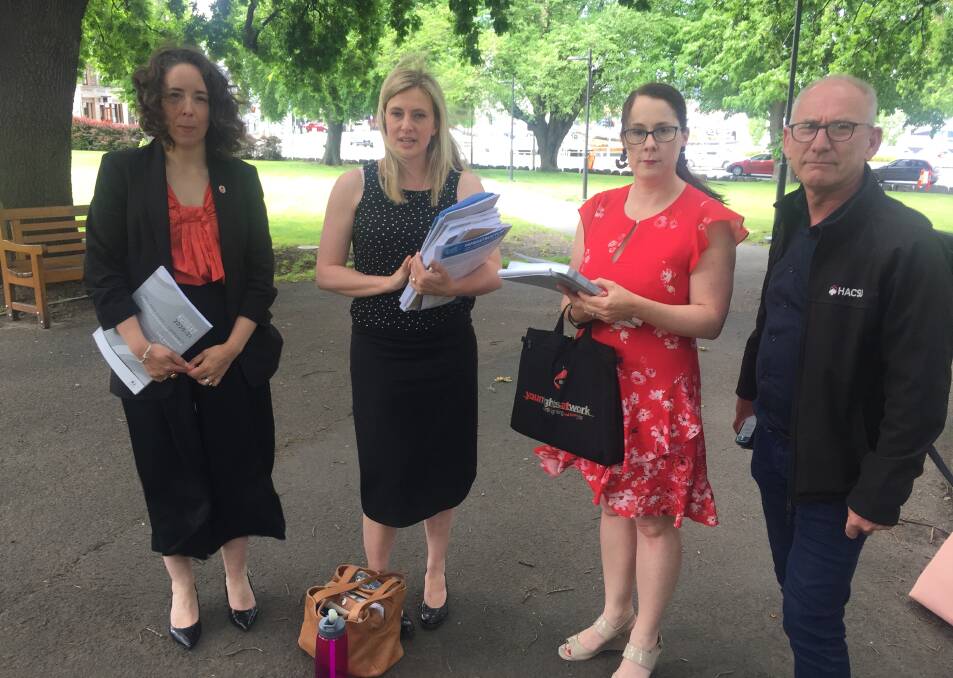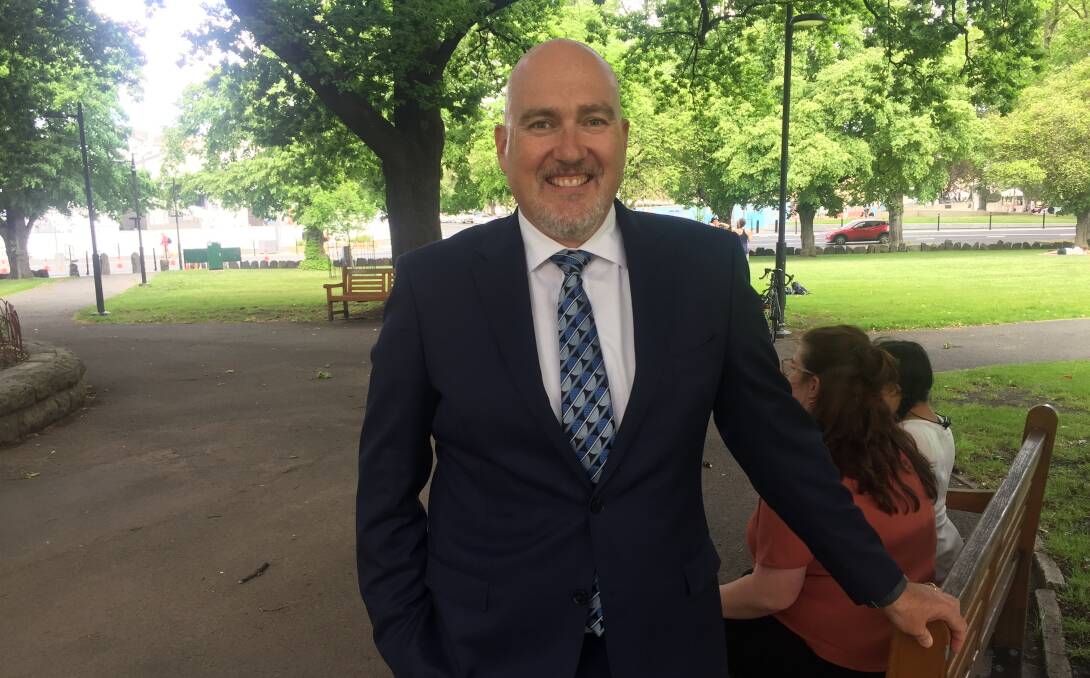
Leading economist Saul Eslake says Premier and Treasurer Peter Gutwein has done relatively well in this year's "radically different" state budget.
Subscribe now for unlimited access.
$0/
(min cost $0)
or signup to continue reading
Mr Eslake said because of the COVID pandemic the budget was different to any he had examined in the past 25 years.
"It is a radically different piece of work from the previous six which Peter Gutwein has presented," he said.
"It has been presented in circumstances which are radically difficult from those which have confronted any Tasmanian government in living memory.
What you need to know about the state budget:
"The overall conclusion is that this budget is an appropriate response to the circumstances which the government is confronting."
Mr Eslake said Tasmania's general government sector was in a relatively strong position, compared with other states.
"The one large blot on Tasmania's current financial position remains its outsized unfunded superannuation liability - which according to the budget papers is expected to rise from $10.3bn to $11.5bn next June.
"As a proportion of GSP this is equivalent to over 30 per cent and almost four times the average for all states and territories."
Mr Eslake also gave Treasury a "serve" for not providing economics forecasts for the 2022-23 and 2023-24 financial years.
"Treasury obviously do have economic forecasts to make projections so why not share them with the rest of us?"
'Lost opportunity'
Despite Mr Gutwein saying the budget was designed to rebuild Tasmania in the wake of the pandemic, Labor and the Greens have described it as "visionless" and a "missed opportunity".
Labor Treasury spokesman David O'Byrne said the budget delivered "unrealistic" forecasts of future surpluses across the forward estimates and "rehashed" previously announced infrastructure commitments.
"There is nothing in this budget that reflects the magnitude of the crisis we have been through over the past 12 months," Mr O'Byrne said. "This was the opportunity to be visionary but Peter Gutwein failed to rise to the challenge."
In other news:
Mr O'Byrne said he was disappointed the budget didn't offer a plan for jobs.
Greens leader Cassy O'Connor believed the budget failed to tackle the "twin challenges" of COVID and climate change.
"What Mr Gutwein, announced fell short of what is needed to set a strong direction for lutruwita/Tasmania's future, and to ensure no-one is left behind," she said. "Once again, the millions are poured into roads, with nothing for pedestrian and cycling infrastructure. There is nowhere near enough in this budget for housing."
Health concerns
Australian Medical Association member and GP Dr John Saul welcomed "some really good things" in the budget including $80 million for the LGH and $33 million for the Mersey Community Hospital.
However, he has concerns about health staff on the ground.
"We need nurses, we need allied health, we need cleaners, we need everyone to run a hospital, not just bricks-and-mortar," Dr Saul said.

"We're living in this luxury of having been on top of COVID at the moment. But come the future, come the next few years, it's going to be tough.
"As health professionals, we were underfunded last year and we're not seeing major changes or benefits this year."
Australian Nursing and Midwifery Federation secretary Emily Shepherd welcomed the additional preparedness for COVID. "But clearly we need an investment for bed block solutions at the LGH and North West Regional Hospital," she said.
Health and Community Services Union secretary Tim Jacobson was disappointed there was a focus on "building things, as opposed to doing things".
"It has not addressed the spike in demand at our public hospitals as unemployment queues grow," he said. "Hundreds of millions promised for health and human services in the 2018 election, which should have been due to come onto the forward estimates this year, and would have provided 1000 workers, has completely disappeared."
Housing praise
Peak housing and homelessness body Shelter Tasmania offered a glowing assessment of the public housing investment.
"$300 million over four years will be spent on social and affordable housing [and] will provide certainty and a pipeline for new construction," chief executive Patti Chugg said.
However, Ms Chugg highlighted the challenges ahead in public housing, noting the 3873 applications languishing on the waiting list, as well as the average time of 64 weeks to house priority applicants.
Tasmanian Council of Social Service chief executive Adrienne Picone said the government's prioritisation of investment in people's health and wellbeing amid the COVID-19 recovery phase was a "welcome shift" and "evident in this budget".
Down to business
Mr Gutwein's pandemic budget "takes a very cautious approach", according to Tasmanian Chamber of Commerce and Industry boss Michael Bailey.
He urged the government to deliver with speed and efficiency the funding it had committed.

"It's one thing to allocate a budget, it's another thing to make sure the money is spent effectively and efficiently," Mr Bailey said.
The Tasmanian Small Business Council was more optimistic, with chief executive Robert Mallett saying the budget provided "unprecedented opportunity" for the small business sector.
Mr Mallett said the number of "bite-sized" projects provided for in regional Tasmania would give "ample opportunity" for smaller operators to benefit.
Tourism Industry Council Tasmania head Luke Martin said the latest budget "delivered" for the beleaguered tourism sector, giving it a "platform to surge ahead over the next 12 months".
What do you think? Send us a letter to the editor:



